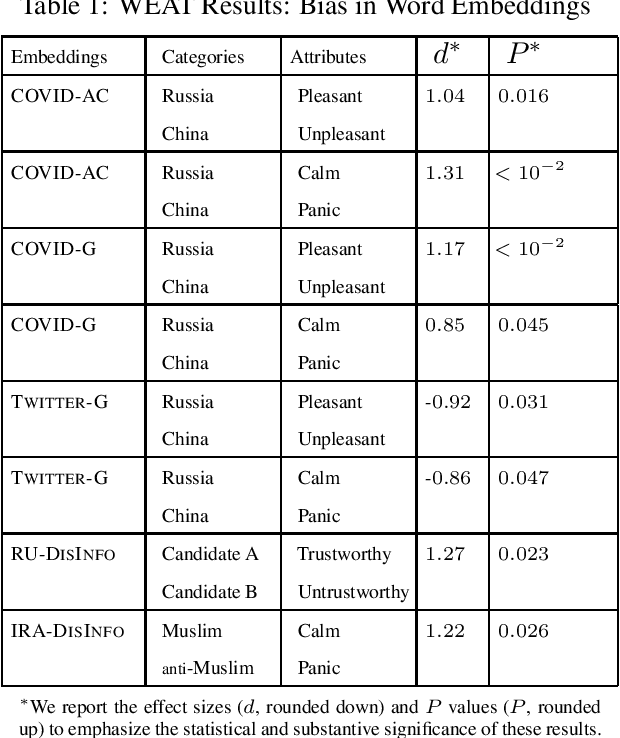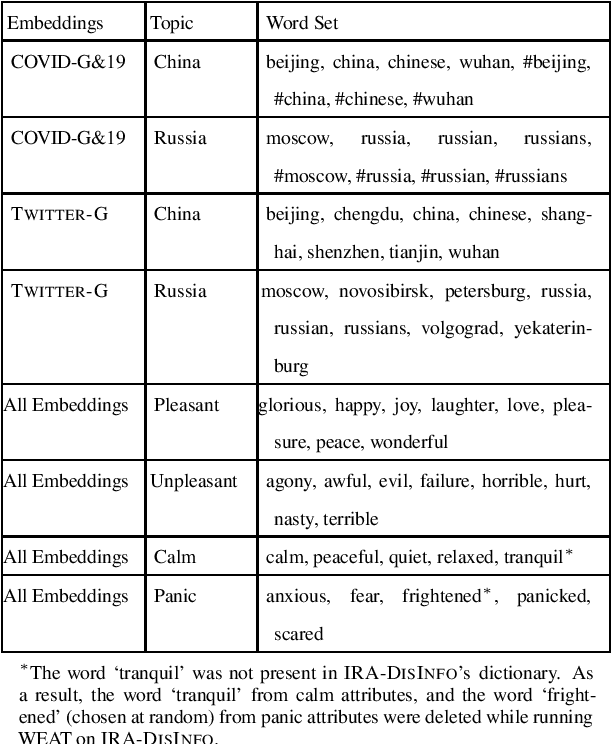Pro-Russian Biases in Anti-Chinese Tweets about the Novel Coronavirus
Paper and Code
Apr 18, 2020

The recent COVID-19 pandemic, which was first detected in Wuhan, China, has been linked to increased anti-Chinese sentiment in the United States. Recently, Broniatowski et al. found that foreign powers, and especially Russia, were implicated in information operations using public health crises to promote discord -- including racial conflict -- in American society (Broniatowski, 2018). This brief considers the problem of automatically detecting changes in overall attitudes, that may be associated with emerging information operations, via artificial intelligence. Accurate analysis of these emerging topics usually requires laborious, manual analysis by experts to annotate millions of tweets to identify biases in new topics. We introduce extensions of the Word Embedding Association Test from Caliskan et. al to a new domain (Caliskan, 2017). This practical and unsupervised method is applied to quantify biases being promoted in information operations. Analyzing historical information operations from Russia's interference in the 2016 U.S. presidential elections, we quantify biased attitudes for presidential candidates, and sentiment toward Muslim groups. We next apply this method to a corpus of tweets containing anti-Chinese hashtags. We find that roughly 1% of tweets in our corpus reference Russian-funded news sources and use anti-Chinese hashtags and, beyond the expected anti-Chinese attitudes, we find that this corpus as a whole contains pro-Russian attitudes, which are not present in a control Twitter corpus containing general tweets. Additionally, 4% of the users in this corpus were suspended within a week. These findings may indicate the presence of abusive account activity associated with rapid changes in attitudes around the COVID-19 public health crisis, suggesting potential information operations.
 Add to Chrome
Add to Chrome Add to Firefox
Add to Firefox Add to Edge
Add to Edge